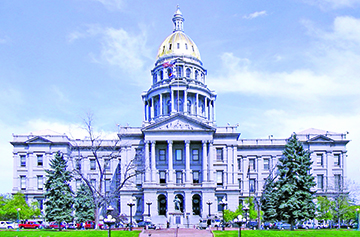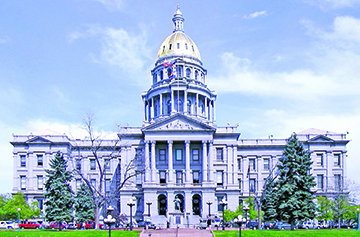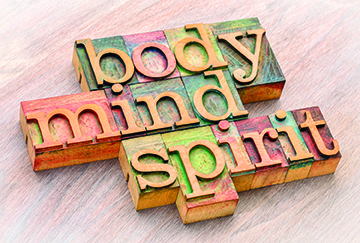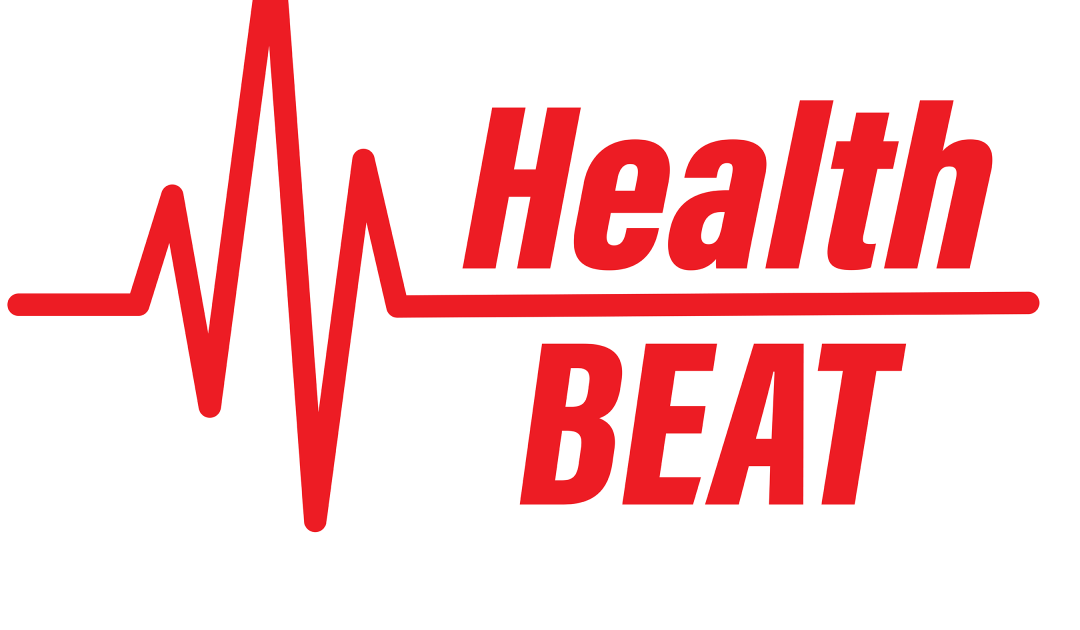
by Glendale Sports Center | Jul 22, 2022 | Glendale City News
by Marlana Krulish, State Director, Youth in Government, YMCA of Metro Denver

For nearly 75 years, the YMCA of Metro Denver Youth in Government program has offered local teens a transformative opportunity to learn more about our democracy and how government shapes the lives of everyone around us.
Over the course of three days, 60 kids from middle schools and high schools across the state of Colorado gather at the State Capitol to take part in a mock legislative program. Participants get to experience what it is like to be a legislator, lobbyist, judge, or journalist while gaining the skills, confidence, and connections to become the future leaders of our community.
The Youth in Government program kicks off with a pre-legislative session where attendees collaborate with their peers with similar assigned roles and meet their nominated presiding officers, including — Governor, Lt. Governor, Speaker of the House, President of the Senate, Attorney General, Chief Justice, and Editor-in-Chief. A local judge then makes it official as each member is sworn in at the start of the first official day of the General Assembly.
Over the course of the next three days, students debate the bills and vote on their respective committees before going in front of the full voting bodies of the mock legislature. Participants learn about the Colorado State Constitution first-hand as they apply it to every decision and aspect of the process while meeting the professional standards expected of real-life lawmakers and stakeholders.
Each year, one of the highlights of the program is the YMCA National Youth Assembly held in Washington, D.C. Hosted by the Student Governors elected in each state, the event provides a platform for connection as participants from across America meet other youth leaders, share knowledge, and adopt new ideas to take back to their respective home states.
The return of the in-person National Youth Assembly in June offered a unique opportunity to Colorado students Robert Erickson and Marcus Centeno from Gold Crown Clubhouse in Edgewater. Recognized for designing a tool for Colorado Children’s Hospital to better serve special needs patients with distance learning, Robert and Marcus became the first Denver YMCA beneficiaries to receive the Changemakers Grant from Amazon, which gave them the opportunity to attend this year’s event.
Although the practical knowledge that Youth in Government provides is invaluable, what makes the program so impactful is the community that it creates. Despite being too young to vote, teens that have a passion for making a difference in their community have a place where they can come together and connect with other future changemakers.
To learn more about the YMCA Youth in Government program and the upcoming session on November 20-23, 2022, at the Colorado State Capitol, visit www.denver ymca.org/yig.

by Glendale Sports Center | Jun 26, 2022 | Glendale City News
by Sue Glass, President & CEO, YMCA of Metropolitan Denver

body, mind and spirit word abstract in letterpress wood type against grained wood
This spring, I marked my 50th birthday, and I declared to the world my intention to complete an IRONMAN to commemorate my milestone birthday. It has been a couple of months now, and my training is in full gear. In the last 30 days, I completed 2,160 exercise minutes (36 hours!). My longest distance ride was 41 miles, run 9 miles, and swim .71 of a mile.
Why would I subject myself to such insanity, you might ask? The answer is simple, yet complex.
Throughout my life I have faced many hardships and life-altering circumstances. Looking back, I never expected to be where I am today, leading a committed team at one of the most inspiring organizations in the world. Those grueling, painful, lonely, and harrowing circumstances I endured produced in myself grit and determination to overcome obstacles. They taught me how to push through pain and discomfort, to rise above the challenges, and to not be defined by my circumstances but be defined by my God-given purpose. It was a long faith journey — filled with pain and forgiveness, perseverance and resilience, healing and self-acceptance.
Reflecting back, my journey was incumbent on three interdependent critical factors: my faith, my mindset, and my physical health. My spiritual journey led to my physical and mental transformation. That is why I’m passionate about the mission of the YMCA, which is all about developing healthy spirit, mind, and body.
Wellness is a full integration of physical, mental, and spiritual well-being. Today, we are in the middle of a mental health crisis. Over the past 10 years and during the COVID-19 pandemic, people have experienced high levels of isolation, grief, and a shift in their normal routines. The Y can be a transformative place where we can learn and practice resilience, as well as adapt and cope despite tough and stressful times. We can practice connecting with ourselves and others, and learn new coping skills that help us thrive.
To support the mental health of people in the Denver metro area, the Y is investing in programs and creating caring spaces to help our community spend time together, have fun, and feel connected to something greater than themselves. These “third places,” a place to belong in addition to home and work, are so essential when navigating the ups and downs of life!
So, what does all of this have to do with IRONMAN? The journey to the IRONMAN parallels our life’s journey: it is grueling, painful, and in some respects lonely. Yet going through the training, we learn skills to push ourselves out of our comfort zone, face our own insecurities, overcome failures, test our resilience, push our limits, and test our physical and mental state. And when the race is complete, we emerge triumphant, stronger, more confident, and limitless. The key is caring for our spirit, mind, and body. The Y is there to support your journey.
I encourage you to check-out the YMCA Metro Denver’s offerings (denverymca.org) to see how our programs can benefit you both physically and mentally. Beyond our numerous fitness class offerings, the Y also provides many programs to help individuals develop and maintain positive mental health, helping to enable individuals to cope with stress, be productive, and contribute in a meaningful way to their families, workplaces, and communities. The Y is here for you!

by Glendale Sports Center | May 20, 2022 | Glendale City News
by Corinne Joy Brown, Aquatics Instructor, YMCA Metropolitan Denver
 As an aquatics instructor at the YMCA of Metropolitan Denver, I can attest that no two classes are alike — which is partly what makes the aquatics curriculum so popular.
As an aquatics instructor at the YMCA of Metropolitan Denver, I can attest that no two classes are alike — which is partly what makes the aquatics curriculum so popular.
Ironically, I avoided the water most of my life — believing that swimming laps was boring. I can attest that, after five years of attending aquatics classes and now teaching, nothing is more fun than aquatics! Finding myself in love with water exercise at 70 is the blessing of my mature adult life.
For over 20 years I have made my living as a writer, and I recently began to see similarities between writing and teaching aquatics. Below are some lessons that transcend from writing to teaching:
Lesson One: Come As You Are
An author shows up as transparent as possible, bringing every experience we’ve ever had to that first blank page. I feel the same way when I stand in front of aquatics students. In our class, there’s no judgment. Each attendee is the sum of their own experiences, as is the instructor, all coming together in that great equalizer: the water. As in writing literature, the more I am myself in class, the more I seem to connect. Over time, I have begun to learn more about each student and their own stories as well; characters in a one-hour, life-changing aquatic challenge.
Lesson Two: Be Observant
A good writer notices things, picks up on details, and keeps a running file on the environment including facial expressions and atmosphere. A good aquatics teacher notices those things too, assessing by-the-minute if the participants are engaged, confused or distracted, and then acts on them.
Lesson Three: Structure
A good book has a beginning, middle, and end. So does a good aquatics class, from the cardio-enhancing warm-up through the cool down. It also depends on a consistent sense of structure, allowing enough time for each phase. Like a good story, you want to keep your audience wanting more and throw in some surprises. And like any satisfying ending, reaching a sense of joy by the end of every class.
Lesson Four:
Start With An Introduction
I make a point to introduce new people to the class and welcome them. Like a preface to a book, I use the beginning of class to set the stage for the day’s direction. These moments help create a sense of purpose, allow me to see who is in the water, and assess my workout strategy.
Lesson Five: Create A Sense Of
Community And Connection
A good writer and aquatics instructor targets their readers/swimmers and stays in touch in order to create a community. Students show up for more than just a workout. What’s good for the body is good for the soul, and each one of our YMCA aquatics classes offers a safe environment and a chance to be in the moment, feel connected, move, and experience a sense of release — not to mention the camaraderie that naturally ensues.
The Y plays a vital role in the community, serving as a safe, welcoming, and inclusive third place, a place beyond work and home.
I recently asked my class what they loved most about aquatics. The most recurring answer was “It just feels so good.” That sentence contains it all. In our classes, personal growth is evident and measurable in terms of increased strength and flexibility, as well as visible confidence and a sense of well-being. The YMCA Metropolitan Denver offers private, semi-private, and group swim lessons for individuals of all ages. Visit www.denverymca.org for more information.

by Glendale Sports Center | Apr 21, 2022 | Glendale City News
by Amanda-Scates Preisinger, MPH
Senior Director of Health and Well-Being, YMCA of Metro Denver

Mental health is how we think, feel, and act. Throughout our lives, our mental health is influenced by the environments around us. When these environments are stressful, we try to cope — sometimes in ways that help and sometimes in ways that harm.
Over the past two years, we have all had to live in stressful environments with COVID-19 and social isolation. The impact on our youth has been particularly staggering with a recent CDC-published study indicating that more than 1 in 3 high school students experienced poor mental health during the pandemic. Now more than ever, we all need a safe and healthy environment that supports our mental health, an environment where the community spends time together, has fun and feels connected to one another.
We at the YMCA of Metro Denver are committed to providing that welcoming and transformative home away from home that we all need right now. As we recognize Mental Health Awareness Month, your local Y is offering a number of workshops and experiences to promote mental health in our community. From mindful yoga and stress management to wellness seminars and fly fishing, there are opportunities for everyone to care for their spirit, mind, and body. Our team members are committed to supporting the mental health of every person we connect with.
While our role at the Y is centered around community care through supportive relationships, positive skill building, and empowerment, we also recognize that we all have different needs when it comes to mental health. By partnering with non-profit organizations and government agencies across the Denver Metro, we at the Y are working to ensure that we can connect anyone with the programming, resources, and support they need.
We know that mental health is a continuum, and our aim is that our programs and services help the community cope with stress, be productive, and contribute in a meaningful way to their families, workplaces, and communities. When adults are healthy, motivated, and socially connected, they contribute to stronger communities. When we support the mental health of youth, they have a greater ability to overcome obstacles, develop fulfilling relationships, adapt to change, and realize their potential.
When we promote the mental health and wellness of each other, that creates a safer and healthier community for us all.
To learn more about our mental health workshops, events and resources at the Y, please visit denverymca.org/mentalhealth.

by Glendale Sports Center | Mar 18, 2022 | Glendale City News
 by Jenna Glover, PhD, Child And Adolescent Clinical Psychologist At Children’s Hospital Colorado
by Jenna Glover, PhD, Child And Adolescent Clinical Psychologist At Children’s Hospital Colorado
Children are constantly surrounded by media and technology — from TV and cell phones, to tablets, computers, and video games. Technology and media are very much intertwined with our daily lives — so much that it can be difficult to find a balance between the real world and the digital one.
That’s why it’s important for families to balance their use of media and technology with daily family responsibilities and other important healthy activities. Too much technology use can keep children from getting the study time, face-to-face communication, hands-on play, physical activity, and sleep they need.
 However, technology can be used to promote physical activity, educate kids and reinforce important skills. Because technology is so deeply ingrained into a modern child’s life, using these same innovative tools to motivate and educate can be more impactful.
However, technology can be used to promote physical activity, educate kids and reinforce important skills. Because technology is so deeply ingrained into a modern child’s life, using these same innovative tools to motivate and educate can be more impactful.
Be a good role model by limiting your own media use. This will also help you be more available for your children to interact and communicate with them.
For children under 2 years of age, play and interact with your child. Avoid screen time except for video chatting with family and friends.
For older children, take an active role in your child’s use of media by watching programs with them and taking time to discuss the program and your family’s values. Choose media that is educational and teaches good values. Be firm about only allowing your child to use and watch media that is appropriate for their age.
Other great things to keep in mind are: Keep computers in a public part of your home so you can check on what your kids are doing online and keep them safe; create tech-free zones in your home; do not allow screens in kids’ bedrooms; and turn off the TV and put cell phones away during mealtimes.
The American Academy of Pediatrics recommends creating a family media plan that helps families balance important daily activities with media use. Families can use it to prioritize time for homework, exercise, sleep, face-to-face communication, family time, and downtime within their daily routine. Time for media use is then incorporated into the day in a way that does not displace other important daily activities.
To learn more about kids and mental health from Children’s Hospital Colorado experts, sign up for a session hosted during Flex Your Family Fun in April at the YMCA of Metro Denver. To learn more, visit https: //www.denverymca.org/programs/youth-programs/flex-your-family-fun.
Adapted from the Children and Technology article that originally was published by Children’s Hospital Colorado.
www.childrenscolorado.org/conditions-and-advice/parenting/parenting-articles /children-technology-guidelines

by Glendale Sports Center | Mar 4, 2022 | Glendale City News
by Jennifer Lease, RD, CDN, Director of Nutrition Initiatives, YMCA of Metro Denver
 Eating more plant-based foods, which simply means food that comes from plants versus animals, can have great benefits for our health. This is because plant-based foods are filled with essential vitamins, minerals and fiber, an important nutrient we can only get from plants! These nutrients help support our health in tons of ways, from heart health to brain health, to keeping digestion running smoothly, to keeping your bones strong, your skin healthy, and just about anything else you can think of!
Eating more plant-based foods, which simply means food that comes from plants versus animals, can have great benefits for our health. This is because plant-based foods are filled with essential vitamins, minerals and fiber, an important nutrient we can only get from plants! These nutrients help support our health in tons of ways, from heart health to brain health, to keeping digestion running smoothly, to keeping your bones strong, your skin healthy, and just about anything else you can think of!
But eating more plant-based foods doesn’t mean you have to stop eating animal-based foods or adopt a vegan lifestyle. Here are some simple tips to start adding more plant foods into your usual meal routine:
- Swap one animal-based protein, like beef or pork, for a plant-based protein in one meal each week. You may have heard the phrase “meatless Monday” — a phrase that simply encourages you to enjoy one meatless meal per week. Our standard American way of eating tends to lean heavily on meats and many of us don’t eat enough plant foods, which can mean we’re lacking certain nutrients. A swap of just one meal per week can make a difference in supporting your health! Swap a beef or pork-based meal with a whole food plant-based protein like beans, lentils, or tofu. Not ready to dive into a fully plant-based meal? Try subbing out half of the animal protein for a plant protein.
- Keep it simple and convenient. There are tons of plant-based protein options available, and it can feel confusing on what to choose or how to cook those foods. Start off simple with a plant-based protein choice like canned beans or lentils, or options you can heat in a ready-to-cook pouch. These ready-to-eat plant-based proteins make it easy to toss into a meal. Try using canned beans or lentils as a topping for a salad or a whole grain, a replacement for taco night or add into a big, warm pot of chili or soup.
- Do a little advance planning to make it easy. Your meatless meal doesn’t need to be dinner. Maybe for you, lunch makes more sense. Everyone’s lifestyle and goals look different and planning ahead of time can help you choose what works best for you. This might mean you choose a new recipe to try with a plant-based protein for the week ahead, or you add a plant-based protein to your grocery list, so it makes it into your cart. It’s easy to fall into old habits, so when you’re working toward a new goal, like including more plant-based foods into your eating pattern, planning ahead can help you stay on track.
Remember: small changes lead to bigger, lasting changes over time! If you’re looking for support and motivation to get started with eating more plant-based foods, you might be interested in the YMCA of Metro Denver’s Meatless March Challenge during March’s National Nutrition Month. Through Facebook community, you’ll get to share pictures and recipes, tips and ideas on how to enjoy more meatless meals with support from YMCA Nutritionists!
Follow the YMCA of Metro Denver on Facebook at facebook.com/DenverYMCA and check out the Meatless March Challenge. 웷









